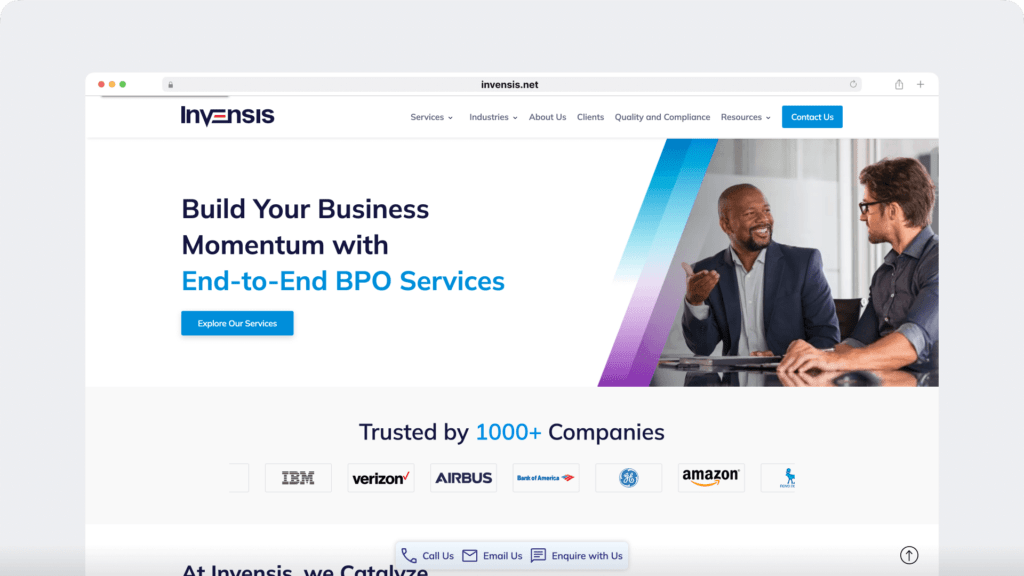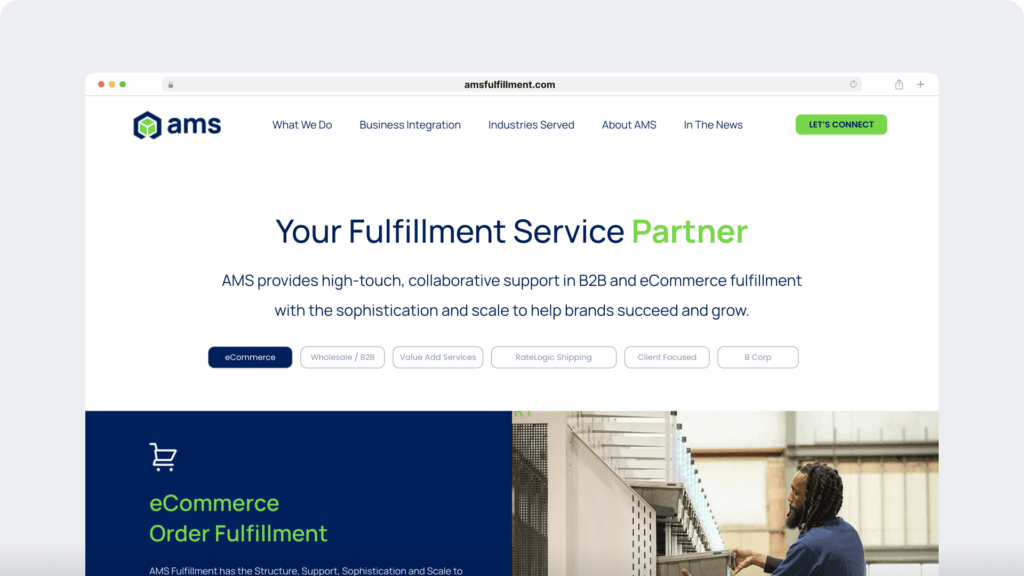Did you know that businesses can save up to 60% of operational costs by outsourcing back office functions? Let’s explore why back office BPO is a game-changer for modern companies.
Back office functions like data management, payroll processing, HR administration, etc., play an essential role in a company’s scalability and productivity.
But why do companies outsource back office BPO functions?
Businesses often find it challenging to execute back office processes as it requires the latest technology, infrastructure, and qualified professionals. Outsourcing these processes gives companies a chance to improve their back office operation in a cost-effective way.
In this article, we’ll discuss what back office BPO is, including its pros, cons, and five popular back office functions. We’ll also check out three top BPO service providers to help you outsource your back office operations.

Let’s get started!
What is back office BPO?
Business process outsourcing (BPO) is when firms outsource functions like data entry, email marketing, accounting, etc., to third-party agencies.
Back office BPO basically refers to outsourcing functions that don’t involve client interactions like customer support, sales, payroll processing, etc. These processes don’t generate revenue on their own.
Here are some industries that commonly use back office BPO:
- Telecommunication.
- Healthcare.
- Real estate.
- Information Technology.
Businesses opt for back office BPO for cost-cutting advantages. It allows them to optimize their back-end business operation, reducing the in-house employees’ workload.
As a result, your in-house team can focus on other core business activities like customer care and product development, helping you maximize your company’s profitability.
For example, Wagepoint (a payroll software company) states that businesses spend around 10 hours a month processing payroll manually. Outsourcing payroll can save a company’s time, prevent miscalculations, and avoid compliance issues.
Check out our comprehensive BPO guide to know about its types and the top companies in the sector.
Next, let’s look at some popular back office functions you can outsource.
5 popular back office BPO services
Here are the top five back office services you can outsource:
1. Data entry
Creating a digital copy of your firm’s data helps employees access critical company information quickly.
But many businesses fail to maintain huge data volumes due to the unavailability of the latest software and technology, such as (Optical Character Recognition) OCR technology.
Apart from cost-cutting, outsourcing data entry services offers other benefits like:
- Access to the latest technology.
- Systematic data organization.
- Improved work efficiency.
- Certified data security like ISO 9001 and 27001.
Countries like China, Mexico, India, etc., offer excellent data entry services that you can use to employ skills for managing important data.
2. Human resource management
Efficient HR processes are necessary for a company’s smooth functioning. To that end, companies usually hire third-party outsourcing agencies from within or outside their countries like India, the Philippines, China, etc.
This way, you can access skilled HR professionals at affordable costs. For example, the average annual salary of an HR manager in the Philippines (USD 14,015) is low when compared to countries like the USA (USD 1,48,000) or the UK (USD 1,29,705).
Further, to streamline HR processes and increase employee satisfaction, outsourcing firms typically use the latest HR technology, such as:
- Cloud-based HR systems.
- Human Resources Management System (HRMS).
- Employee Self Service Systems (ESS).
As a result, you can increase profitability, reduce employee attrition rates, and access affordable tech.
Some commonly outsourced HR back office functions are:
- HR administration.
- Leave management.
- Benefits management.
- Recruitment.
- Employee onboarding.
3. IT support
IT support is critical in running many essential operations of a company. For example, you must ensure post-sales technical support like a help desk or real-time online support service to enhance customer experience and satisfaction.
Outsourcing IT support will help you partner with a service provider that offers experienced staff and sophisticated technology like artificial intelligence and OCR services. This will help you provide efficient, faster, and better services for your clients.
Commonly outsourced IT support services include:
- Data recovery services.
- Network services.
- Data security services.
4. Marketing and public relations
Marketing your firm’s brand and products is essential to the growth of your business. But it’s also time-consuming and unaffordable for many startups and medium-scale businesses.
That’s why companies outsource these tasks to back office BPO companies that have skilled specialists and good PR networks.
Many outsourcing companies also offer a complete suite of PR and marketing services, making it more affordable than individual marketing services. Through this service, firms take care of your business’s complete branding and campaign management.
Here are some marketing and public relations services you can outsource:
- Content moderation.
- Graphic designing.
- Copywriting.
5. Payroll and bookkeeping
Payroll refers to tracking employee paychecks, while bookkeeping means monitoring the firm’s overall financial transactions like invoicing, billing, etc.
These back office BPO services are better outsourced as they’re time-consuming and recurring tasks – often prone to errors.
Many financial back office outsourcing firms use technology like Transaction Processing System (TPS) or Online Transaction Processing System (OLTP) for e-commerce firms. These processes minimize paperwork, streamline financial services, and increase cost savings.
Let’s check out some more benefits of outsourcing a back office function.
4 amazing advantages of back office BPO
Here are four incredible ways back office BPO can transform your business:
1. Reduce overhead costs
Popular outsourcing countries like China, Vietnam, Mexico, etc., have low employee salaries and cost of living.
For example, the average annual salary of a customer service representative in Mexico (USD 7,455) is lower than in countries like the USA (USD 35,600) and the UK (USD 31,975).
So by outsourcing back office activities to a BPO firm, western companies can cut back on employee hiring and training costs.
Moreover, these developing countries typically offer incredible tax benefits and duty exemptions to encourage outsourcing.
For instance, the Vietnamese government promotes outsourcing by offering nearly 98% tariff reduction for firms in ASEAN and FTA countries under Regional Comprehensive Economic Partnership (RCEP).
Outsourcing helps improve operational efficiency by deploying affordable technology and automation for your business functions. This saves time, increases cost savings, and boosts productivity.
2. Access to a large talent pool
Hiring back office employees with specific skill-sets like an HR executive, software developer, or a virtual assistant may be expensive and time-consuming for some business owners.
Meanwhile, back office BPO companies already have a qualified staff ready at hand. So by partnering with a back office BPO firm, companies can avoid spending time and resources looking for the right employee.
Since these back office service providers handle multiple clients and projects, their employees are experienced and can handle any tasks.
Most developing countries like Thailand or Costa Rica expand their educational and technical infrastructure to produce skilled graduates that cater to the growing demand of the outsourcing industry.
For instance, Costa Rica promotes science, technology, engineering, and math (STEM) education to build a qualified candidate pool. As a result, the country today houses Latin America’s top colleges that produce around 3,500 engineers and 7,000 STEM graduates every year.
3. Improve scalability
According to a leading B2B review platform, Clutch, around 33% of small businesses outsource to access flexible resources that can improve their business’s scalability.
This is because businesses need a flexible back office operation that adapts to changing market trends and business needs.
For instance, your chosen BPO company’s back office support service should offer consistent quality assurance even when your products, customers, and employees multiply.
Most back office BPO companies offer flexible business models that can be customized to suit your business needs. You can either choose traditional fully-managed outsourcing workstations or remote teams to cut costs.
This way, you don’t have to spend money maintaining an in-house back office team. Instead, you can invest it in a business process like developing new product designs to accelerate business growth.
4. Focus on customers
Outsourcing back office tasks allow you to focus on essential front-office business activities like developing services to maximize customer satisfaction. This, in turn, helps accelerate your company’s revenue generation.
Many BPO companies also offer excellent back office support services that improve customer service experience. It includes providing administrative and technical support to your customers through multiple channels like emails, calls, or messages.
5. Enhanced risk management
By outsourcing certain back office functions, businesses can also reduce risk exposure in areas such as compliance, data security, and legal matters. Many outsourcing firms specialize in navigating local laws and regulations, especially in industries like finance, healthcare, or insurance. This ensures that companies remain compliant with industry standards and regulations while reducing the chances of costly errors or legal issues.
For instance, when outsourcing payroll, a BPO provider will ensure that all tax laws, labor regulations, and benefits compliance are adhered to, reducing the risk of fines or penalties for the business.
6. Improved operational efficiency
Outsourcing back office functions enables businesses to adopt automated processes and use advanced technology without the upfront costs of purchasing software or training employees. For instance, BPO providers often leverage tools like cloud-based HR systems, HRMS (Human Resource Management Systems), or CRM platforms to streamline back office processes. This leads to faster, more accurate processing of data, reduced errors, and improved overall productivity across operations.
While back office BPO offers some terrific benefits, it also has certain drawbacks. Let’s take a look at a few of its shortcomings.
3 key drawbacks of back office BPO
Here are three essential disadvantages of back office BPO that you should know before tying up with a back office outsourcing firm:
1. Quality control
You may find that your in-house operations are easier to monitor than the outsourced ones. Operating from two different places can result in miscommunication between the outsourced and your in-house team. This may lead to:
- Subpar work quality.
- Delayed service delivery.
- Declining revenue and sales.
Moreover, an unsupervised outsourcing team could affect your business’s work quality and services, especially if you’re outsourcing to a foreign country.
Fortunately, you can resolve these issues by investing in a productivity tool like Time Doctor. Here’s how this powerful workforce management tool helps you:
- Track outsourced team’s work hours with silent and interactive time tracking tools.
- Enable employees to track time offline even when their internet is down.
- Generate comprehensive reports to get real-time productivity updates.
- Create work schedules to distribute workload effectively.
- Make batch payments via payroll integration with tools like Paypal and Wise.
2. Data security
Outsourcing back office processes like payroll, customer service, etc., may require you to share employees’ and clients’ sensitive information like addresses, account numbers, etc.
This could make you prone to data security issues. Serious data breaches can affect your sales as customers and employees prefer companies with good data security.
So how do you ensure data security?
If you’re outsourcing to a foreign country, you’ll have to do your due diligence or take legal advice as each country has its own data security laws.
Here are a few things you can do:
- Choose a credible back office BPO company.
- Sign non-disclosure agreements (NDA) to protect your IP (intellectual property) rights, ensure privacy, and secure your data.
- Review security certifications, such as Service Organization Control (SOC 2).
3. Time zone differences
Time zone differences become a problem mainly when outsourcing to foreign countries or regions within your country with considerable time differences.
For example, if you’re a New York-based company outsourcing to the Philippines, you’ll experience a time difference of 12 hours.
This may result in scheduling clashes and employee miscommunications, affecting the work output.
To solve this problem, both parties could schedule meetings at mutually agreeable hours. If you’re outsourcing to another country, you may even establish employee shifts that work best for your business and standardize the work hours for all.
Let’s look at some popular back office outsourcing firms that can sort out these issues and help you with this process.
Top 3 back office BPO service providers
Here are three back office outsourcing partners that can help you with your outsourcing needs:
1. Acquire BPO

Acquire BPO is an Australian company that aims to scale organizational performance by offering expert professionals, top-notch technology, and service quality assurance.
Key services
- Offers traditional office setups and remote outsourcing teams to suit your business needs.
- Offers Client Relationship Managers (CRMs) and certified project managers to ensure smooth execution of services.
- Automates back office tasks using their holistic BPO automation solution and AI experts.
- Provides back office support for data entry, HR admin, accounting, and bookkeeping.
2. Invensis

Invensis Technologies is an outsourcing company with multiple delivery centers in Bangalore, Delaware, Hyderabad, etc. The firm offers services like IT support, customer support, digital marketing, etc.
Key services
- Offers high-quality back office services such as data management, OCR services, billing, and invoicing processes.
- Uses industry knowledge, skilled professionals, and advanced technology to deliver quality services.
- Gathers relevant marketing trends, customer satisfaction data, and future revenue trends using data mining processes.
- Provides services that are compliant with the ISO 9001:2008 requirements.
3. AMS

AMS Fulfillment, headquartered in California, aims to help businesses cut costs and achieve efficiency through automation. It uses customized business models to meet your company’s needs.
Key services
- Enhances your firm’s customer experience with excellent customer support services.
- Uses intuitive processes like a client portal (WAMS) to manage high-volume shipping needs.
- Offers AMS Fulfillment Full Service Model to help with all back office outsourcing services.
- Offers financial and available-to-sell (ATS) reports to keep you updated.
Wrapping up
Outsourcing your back office function can help you optimize business operations and focus more on your front office tasks like customer care and sales.
That’s because, despite drawbacks like possible miscommunication, back office BPO transforms your business through technology and expertise.
You can also choose a back office service provider that best understands your company’s goals and requirements for an incredible outsourcing experience.
Use our comprehensive guide to see how back office BPO can scale your business performance and help you accomplish critical goals!
Frequently asked questions(FAQ)
1. What are the risks of outsourcing back office functions?
Outsourcing back office functions can come with risks such as data security concerns, quality control issues, and communication barriers due to time zone differences. It’s important to choose reputable outsourcing providers, implement strong communication protocols, and ensure compliance with data protection laws to mitigate these risks.
2. How can outsourcing back office functions improve customer experience?
By outsourcing back office operations like data entry, payroll, and HR, businesses can free up in-house teams to focus more on customer-facing roles such as sales and customer service. This helps improve responsiveness, service quality, and overall customer experience. Additionally, some BPO providers offer customer support services, improving customer interaction directly.
3. How does outsourcing back office functions help with business scalability?
Outsourcing allows businesses to scale operations quickly without the need to hire and train new employees. As demand for services fluctuates, businesses can adjust their outsourced resources without the overhead costs associated with expanding in-house teams. This scalability is particularly beneficial for small businesses looking to grow without significant upfront investment.
4. What is the difference between front office and back office outsourcing?
Front office outsourcing typically involves customer-facing tasks like sales, marketing, and customer support. Back office outsourcing refers to tasks that are non-customer-facing, such as payroll, HR management, data entry, and IT support. While both types of outsourcing can improve efficiency, back office outsourcing focuses more on administrative and operational support.
5. How can I ensure the quality of service when outsourcing back office tasks?
To ensure high-quality service when outsourcing, you can set clear Service Level Agreements (SLAs) with your outsourcing provider. Regular monitoring, performance reviews, and using tools like Time Doctor for tracking productivity can also help maintain service standards. Additionally, ensuring your provider has a track record of delivering high-quality services and certifications (like ISO 9001) is crucial.
6. What industries benefit most from outsourcing back office functions?
Industries that rely heavily on administrative and operational support can benefit significantly from outsourcing back office functions. These include:
- Telecommunications: Outsourcing IT support, data management, and billing.
- Healthcare: Outsourcing medical billing, coding, and HR services.
- Finance: Outsourcing accounting, payroll processing, and compliance monitoring.
- E-commerce: Outsourcing customer service, inventory management, and order fulfillment.
7. How can Time Doctor help with outsourcing back office operations?
Time Doctor provides businesses with the tools they need to monitor outsourced teams, ensuring productivity and accountability. Features like time tracking, screenshots, and project management integration help businesses stay on top of outsourced tasks while maintaining quality control. Time Doctor also provides real-time reports to give insights into team performance and identify potential inefficiencies.


